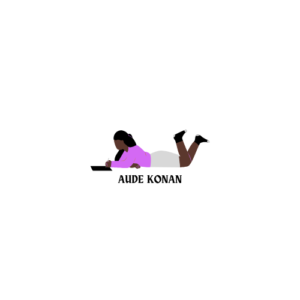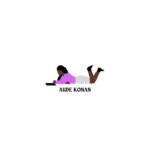
What does it mean to be a punk of colour?
I discovered the whole punk aesthetic and movement one fateful day of May, at a manga convention, when I stumbled on to a dusty book of the manga Nana.
Nana tells the story of two young women moving to Tokyo. One of them is the lead singer of a punk band, heavily influenced by the Sex Pistols and Vivienne Westwood.
I begun to listen to have an great fondness for The Clash, Skunk Anansie, Nina Hagen, Joy Division and other punk bands. But despite identifying so heavily to that subculture, I never felt like I truly fitted in. I tried to wear the punk uniform, well aware that it meant standing out among the kids my age, something I was both dreading and longing for. When you’re part of a subculture, you have to adhere to the aesthetic or running the risk of not being recognized, acknowledged by your own. But no matter how often I’d wear my Doc Martens or my chains, it seemed like there was something missing in me that other people could see out, something I didn’t understand was so important. The elephant in the room became more apparent when I tried to find my place among my people, other kids my age who were into punk and rock in general. I would invariably see fingers pointed at me and people would ask: what are you doing here?
It didn’t matter that I was there for the music or that I was wearing the uniform. I was Black and Black is not Punk.
I would proudly mention all the songs of my favourite bands, use the first opportunity to show my knowledge of punk, as if being black made me less than them and I had to compensate by proving that I deserved to be in a space for punk music fans just like everyone else. As if white Punks, by virtue of their colour, were the gatekeeppers of the movement and I had to show white leg. Being a true punk was less about the music or what the movement meant to me, and more about (just like in any part of our western societies), pleasing white people, this time the punk ones who were the only ones being able to deem me, or not, a punk.
And then, one day, I saw a documentary about black punks like me, living in New York. It triggered a revolution in my life. Finally, I had the proof that I wasn’t the only one. That I had a chosen family, somewhere across the pond. That I wasn’t insane for loving punk, and, contrary to what many had wrongly told me, I wasn’t acting white by listening to it.
Many black punks such as Tamar Kali, Game Rebellion, Bad Brains, were finding new ways to combine the Black cultures they were part of, with punk culture, resulting in creating new types of music, which is brillant. And truly, I feel like I could relate much more to their type of music exploring what it’s like to be both black and punk.
The relief of knowing that there were communities of Black Punks (and that many existed before I was even born) was like holding a lantern with me, every time I had to bargain my way into punk spaces, every time I had to explain why I loved the music so much.
As a punk of colour, I have made, throughout the years, the conscious choice, to privilege going to spaces made by people like me. Hence why I document, as a writer, so many punk movements created by punks of colour from all over the world and why I’m so excited about Decolonise Fest and the kind of space it aims to create. Punk started as a movement to celebrate difference and to get rid of unfair, stupid societal rules. It was made for all the kids who didn’t fit in the mainstream sphere. But even in mainstream punk spheres, who are supposedly more open minded, punk of colour are still not fully accepted. So, in many ways, being a punk of colour is to be a punk in the truest sense of the term, as we are the ones who stand out and have successfully created a whole subculture inside one to create space to fully express ourselves.
And that is the beauty of punk.

